He is thinking: “See how God writes straigh on crooked lines.”1
What realistic form can a manifesto of neo-romanticism take in a positivistic age? How many people will even recognize it as such? In a time when life has been cheapened by the talons of radical ideology, those who cultivate a sense for life are of necessity ostracized as non-conformist reactionaries. For, what is the aim of social-political radicalization, if not the destruction of the sense for life that thoughtful individuals cultivate? Collectivism promotes a radicalized worldview that levels man’s capacity for self-rule.
These are pertinent questions that attentive and astute people must ask about man’s future, circa 2019. Individuals who possess a sensibility for the sense of life spare themselves the humiliation of embracing a social-political view of the world, man and human reality that reduces existence to social-political categories. It is imperative to recognize that a genuine sense for life is anchored in a pre-political Geist that eschews the fallacious and destructive notion that human life is social-political in make-up.

Jean-Paul Sartre (b. 1905 d. 1980)
The sense for life becomes jaded during ages when human relations become poisoned by radical ideology, and which as a result, become anchored in hypocrisy, double-dealing and calumny. Radical ideology’s modus operandi is suspicion. We witness this in a grand scale in Jean-Paul’s Sartre’s pathological preoccupation with suspicion of the “Other.” More recently, we are witnessing the aberrant logical consequence of this pathology in Slavoj Žižek’s equally sinister rendition of human relations. It is impossible for the sense for life to develop, much less flourish, in an age dominated by radical ideology. The sense for life is intractable and holistic, and refuses to be reduced to social-political categories.
A radicalized, social-political vision of man may satisfy the postmodern relativistic funhouse vision of human reality, especially its totalitarian notion of the state’s all-encompassing role in human affairs, but this nefarious vision has nothing to do with man as a differentiated, cosmic being. Lucretius asserts this same thought in On the Nature of the Universe, when he writes, “Consider too the greed and blind lust of power that drive unhappy men to overstep the bounds of right and may even turn them into accomplices or instruments of crime, struggling night and day…”2
The import of any manifesto of neo-romanticism written in the twenty-first century must take into account that a manifesto that does not offer a collectivist approach to human existence today, must necessarily remain relegated to the future of Man. Practically speaking, the latter is the result of subsuming the romantic ideal of the values of differentiated persons to the demands of radical ideology’s altar to social-political praxis. This is a strong indication of the state of moral and social decay that Western civilization is up against. Yet human aspirations and hope must endure.
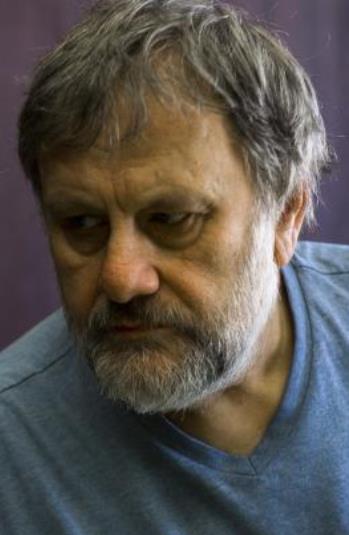
Slavoj Žižek
The early part of the twenty-first century should be read as an encyclopedia, not so much about Man’s cultural and technological development, but of the pathological and moribund state of Western civilization. Undoubtedly, Auguste Comte was correct that ours is a positivistic age. As such, Man’s ability to decipher fundamental metaphysical and existential truths about human reality has eroded, like perhaps during no other time in history. Here, I am not referring to Man’s material condition. Ironically, postmodern Man enjoys the highest living standards of any previous age. Economic indexes bear the truth of this. Instead, what is particularly troubling about the state of postmodern Man’s moral-spiritual-cultural health must be measured in the degree of arrogance and vacuous quality of our social-political claims. Postmodern Man is intellectually dishonest and morally lazy. This is the case because postmodernism is a breeding ground for the creation of unfounded and contradictory views of Man. These claims are mired in a failed philosophical materialist anthropology that will not be able to sustain cultural vehemence and social-political stability in the near future. And then, what?
One does not need a crystal ball to predict or merely look into the future. George Santayana was right about history repeating itself. Close observation of the past is enough to set people of good will on the path to truth. Observation remains one of the hallmarks of constructive philosophical reflection and scientific enterprise. Thus, if observation is wanting in our time, this must be attributed to either of two causes. Both of these are ominous, looking to the future of Man. Either postmodern Man has lost the capacity to observe and thus decipher human reality, regardless of the unsavory truths we often encounter. Or, our incapacity for prescient observation, which has since time immemorial been a staple of a healthy and constructive philosophical anthropology, is the result of bad will. If the latter is indeed the case, then more likely than not the culprit will be radical ideology and its attendant corrosive values.
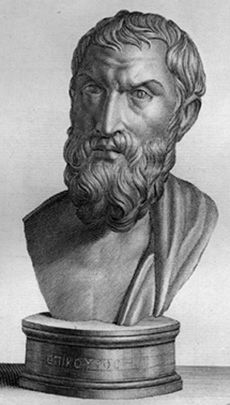
Titus Lucretius Carus (b. 99BC d. 56bc)
If past failures cannot teach us anything about how to proceed in the future, then man might as well embrace animal or vegetative life wholeheartedly, for animals live in an eternal present. Stupefaction achieves for human values what instinct does for animal life: the creation of a subject-less being that is the plaything of radical ideology.
Hence, looking to the future of Man, there is an urgent need for thoughtful people to safeguard future generations from the claws of radical ideology. But how best to achieve this timely task? One way to answer these questions and many others of the same vein is to set up a set of standards and objectives that make clear the aims of a manifesto of romanticism, circa 2019.
Why are such standards necessary? To answer this, we must keep in mind that it is no small task, in an age of electronic sensualism that is coupled with radical ideology, to fully comprehend how Western values have been consumed by social-political stupefaction. The latter, like an aggressive form of cancer, has taken over the entire corpus of human existence: morally, spiritually, culturally, Man’s sense of danger and limitation, and our capacity to distinguish appearance from reality. For this reason, I suggest 5 standards that can serve as a guide to the future re-building of Western civilization.
The following 5 points aim to make clear the degree to which Western civilization has lost its history. That is, with the passage of time, moral-spiritual decay and cultural degradation come to be accepted by people who have been stripped of their history as a new normal, albeit, one which is informed by aberrant lows.
I
The Corrosive Nature of Atheistic Philosophical Materialism
The moral-spiritual and social-political condition that was ushered by modern history during the 19th century became fully manifested – came home to roost – let us say, after World War II. In the past, the shortcomings of moral decay have always affected society at large at a rate and speed that sentient and thoughtful people could easily assuage. This means that prior to WW II intelligent people were still able to decipher appearance from reality and the machinations of ill will. Up to the time of World War II, Western man still had a buffer zone of protection from the assault of moral-spiritual corruption.

August Comte (b. 1798 d. 1857)
So, what changed? The great change that I am signaling out could not make its Janus-face ambition known until the intellectualization of techniques of social-political terror that Karl Marx initiated, and which were perfected by Soviet Marxism, beginning with Vladimir Lenin. These historical events perfected the modern totalitarian state. The form of totalitarianism that Marxism brought about must not be confused with despotism. While despotism is older than Marxist totalitarianism, it is not the brainchild of intellectualized techniques of terror, whose raison d’etre is the attainment and consolidation of power through all means.
The dawn of Marxism as a radical ideology, not just an economic theory, saw the first push of its praxiological influence into Western civilization in the 1860s. Marxism, in all its many variants, especially after The Frankfurt School’s beginning in the Institute of Social Research at Goethe University in Frankfurt, Germany, in 1918, devised a systematic attack on Western values and mores that became ingrained in the popular conscious in ways that people up to today never suspect. This form of systematic and intellectualized assault on human reality is unprecedented in human history.
Looking to Western Man’s future, it is of paramount importance to understand how Western civilization has fallen prey to the philosophical, spiritual, moral and cultural wasteland of Marxist and neo-Marxist ideology. The importance of this question is rooted in comprehending the degree of damage that the latter has wrought on Western man’s capacity to embrace a healthy sense for life.

George Santayana (b. 1863 d. 1952)
In 1909, an influential volume of essays critical of socialism was published in Russia entitled Landmarks (Vekhi). This book was significant because it was written by imminent thinkers who witnessed the messianism of the Marxist intelligentsia of the last forty years of the 1800s in Germany. The writers included in the book were Nikolai Berdyaev, Mikhail Gershenzon, B.A. Kistyakovsky, Sergiei Bulgakov and Peter Struve. At the time, Berdyayev and Bulgakov were already disenchanted ex-Marxists. The collection of essays addressed the Marxist intelligentsia, which embraced and promoted atheistic materialism in diverse forms. The authors of the essays realized that philosophical materialism had no place in the public sphere. They predicted that the Marxist ideology of the ruling German intelligentsia during the second half of the19th century would eventually unleash violence and misery upon the world in the years to come.
The authors called for a return to traditional spiritual values – which for most of them meant those enshrined in Christian teaching – as a necessary condition for a regeneration of the country’s intellectual, cultural and social life. All of them were united – as Gershenzon wrote in his preface to the volume – by their ‘recognition of the primacy both in theory and in practice of spiritual life of the individual…and not the self-sufficing elements of some political order is the only solid basis for every social structure.’3
The book caused a great uproar from Marxist and Communists, including Vladimir Lenin, who called Landmarks “an encyclopedia of liberal apostasy.”4 After the October Revolution of 1917, Landmarks was banned in Russia. The book was officially attacked up to the time of the Stalin purges of 1947-1948.
Even though the authors of Landmarks had emigrated from the Soviet Union, in 1918 they published another collection of essays that served as a follow-up of the logical consequences of Marxism that they cited in Landmarks, and which the Bolshevik revolution now made manifest. The work was entitled De Profundis. This book was also banned. Berdyayev wrote that Russia had been “seized by evil spirits.”
II
A New Dawn for Light Romanticism
As a movement, Romanticism took various forms, whether in literature, philosophy, music and art. This is important to keep in mind, especially as my intent in these pages is not to reconcile all of them under the same roof, as it were. Historically speaking, it does not take much daring to suggest that the inspiration for romanticism garners its central element of awe and wonder in writers and philosophers of antiquity. Two aspects of classical writers and philosophers come to mind: stoicism and philosophical reflection as a way of life. These are aspects of Romanticism that regularly go unnoticed by academic scholars.
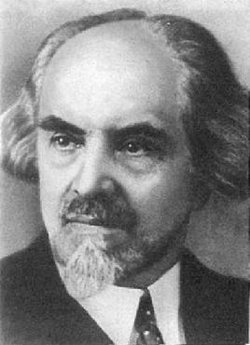
Nikolai Berdyaev (b. 1874 d. 1948)
Both aforementioned aspects of philosophical reflection came as the result of the ancient Greek idea that man can know the structure of objective reality – to some degree. This did not entail total understanding, for the very basis of awe and wonder, as Socrates aptly pointed out, is that knowledge makes honest seekers humble. Humility – Socrates’ “all I know is that I know nothing” – what today we refer to as Socratic irony, is a fine start to understand the role of neo-romanticism, circa 2019.
However, at this point a disclaimer is necessary: It is important to remind people who confuse Marxism with idealism, and as a result imagine that Marxism is a form of romanticism, that Marxism is antithetical to all forms of romanticism and philosophies that embrace an individual’s aspiration for self-rule.
For this reason, I will suggest that a genuinely felt, and as a consequence lived, neo-romanticism must be tempered with respect for realism. It is imperative to understand that neo-romanticism must embrace a realistic worldview. The strength of a neo-romantic worldview is that it permits people to cultivate a well-rounded, moral-spiritual existence that can attain contentment, without becoming objectified by the sensual demands made on persons by positivism. Undoubtedly, the predominant form that positivism has taken in postmodernity is radical ideology.
The difference between Romanticism as a movement in the past and the neo-romanticism of the future is that much history has taken place in the time being. History cannot be ignored. What has been tried over and over and has failed, must be discarded. Western civilization cannot be separated from respect for the plight of individual persons. Tradition has much to teach a neo-romantic of the future about dignitas and pietas. Neo-romanticism equates individual self-rule with life-as-gravitas.
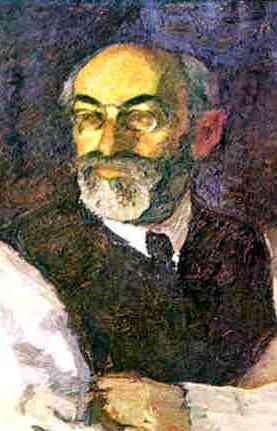
Mikhail Gershenzon (b. 1869 d. 1925)
In this sense, neo-romanticism embraces the awe and wonder that free will and curiosity usher. The latter are characteristics of healthy young people, during any historical age. Hence, the embrace of neo-romanticism must of necessity eschew the temptation to conceive and fashion human existence by using a social-political lens. Healthy idealism has become so jaded that young people have become paralyzed by cynicism long before they have had an opportunity to experience the pangs of human reality. In postmodernity, the destruction of idealism turns many young people into bitter ogres.
One thing remains clear, and that is that what some people think of as social-political idealism, has nothing to do with a neo-romantic approach to life.
While the former idealism is fomented in a social-political rendition of man in the world, and which ultimately consumes itself in failure, neo-romanticism, on the other hand, is a lived-experience that cultivates reflection on the self, as this is tempered by objective reality. Marxism sees no limits to human action and morality, while neo-romantic idealism is content to live and emote in a manner that does not embrace Marx’s morose dictum that philosophy must change the world.
Romanticism, as a historical period of human creation, is considered by many historians to have taken place roughly between the 1770s and 1840s. Yet romanticism as a human desire to express an overflow of emotion and the sense for life has always been part of the perennial philosophy. As long as there have been sentient, thoughtful people who reflect on their plight in the cosmos, there have existed forms of romanticism that are motivated by existential reflection. It is this attitude toward personal existence that I want to elaborate on in these pages.
As a movement, Romanticism was predicated on the plight of the individual person against the suffocating encroachment of the state and the objectification of the self by the blind conformism of Mass-Man. Yet these are only two tenets of Romanticism. Other factors include inspiration taken from the complexity, as well as simplicity found in nature. As towns and cities began to expand, after the age of industrialization, romantic thinkers began to appreciate and long for the days when society was simpler. Romantics gravitated to antiquity and the Middle Ages This is why one of the favorite themes of romantic painters is the love of open spaces, pasture lands and the majesty of the sea.
Samuel Taylor Coleridge argued for essences that inform objective reality – natural laws – that poets and thinker can tap into. According to Coleridge, Romanticism was anchored in human emotions, but it was equally awed by the structure of the bigger-than-me. This is one way to approach the sublime and seek transcendence.
Thus, Romanticism’s regard for the plight of differentiated individuals rejects the altar to the state that Marxism aims to erect. These two ways of looking at human reality are contradictory.
III
Return to the Sense for Life.
While darker, what can be considered more baroque aspects of Romanticism are prevalent in Western writers, thinkers and poets, the sense for life remains a staple of this form of reflection. Dark Romanticism saw its beginning in Horace Walpole’s 1764 novel The Castle of Otranto, in a form that came to be known as Gothic literature. Other gothic examples of Romanticism in the Gothic novel are Mary Shelley’s Frankenstein and the writings of Edgar Allan Poe. Perhaps the culmination of gothic literature’s imagination and intensity is the publication of Bram Stoker’s Dracula, in 1897. Yet many of the themes of Romanticism made their way into the 20th century in the novels of the Welsh writer, Arthur Machen.
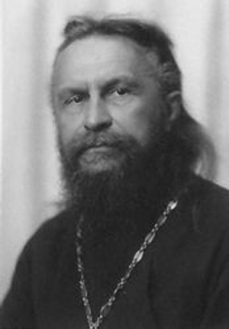
Sergei Bulgakov (b. 1871 d. 1944)
The subtitle of Shelley’s Frankenstein is the Modern Prometheus. In ancient Greek mythology, Prometheus is said to have given man fire, which consequently freed the ominous genie in the bottle, as far as Greek mythology and Shelley are concerned, that unleashed man’s capacity for progress. Of equal significance, Michelangelo – the Neo-Platonist who believed that his sculpture liberated captured figures inside the marble – said that his statue of “Night” was meant to lament the passage of time and her role in it.
While dark Romanticism, in the form of the Gothic novel, remains an expression of forces beyond Man’s control, it is also a form of deference for the mysteries of life and death. The latter is not new to Gothic Romanticism. On the contrary, as a movement, Romanticism found inspiration in the mysteries that the ancient Greek and Romans and people in the Middle Ages, regarded as central components of human existence. It is not difficult to realize that romanticism as a mood and weltanschauung is a staple of human existence that cannot easily be disassociated from the perennial philosophy.
Consider the respect that ancient Man had for the power that night exerted over the human psyche. Any time and place that people live by the rhythm of sunrise and sunset elicits profound respect for both day and night. Daylight enables Man to keep in perspective the nature of human possibility. On the other hand, night highlights the reality of human limitation. Homer thought that when people die darkness descends upon them, especially on their eyes. This was a reminder of the proximity of Hades to man’s world. This signifies that man’s realm of influence can only be stretched so far. In the Iliad, readers are reminded that night affects Gods and man. This is a case of limitation, not as negation of what man deems possible, but as the framework of possibility itself.
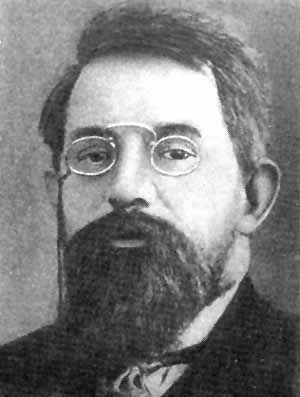
Peter Struve (b. 1870 d. 1944)
In Hesiod’s Theogony, which is a work of cosmogony – the origin of the universe – Erebos, the God of darkness and night is one of the earliest manifestations of cosmic powers. Hesiod suggests that Chaos came into existence first. Chaos is the void, or space that comes after the separation of Earth from Heaven. What is significant in Hesiod’s account of creation is that man must come to understand and embrace his cosmic plight. Man must manage his plight or become consumed by cosmic forces. One way to defy cosmic objectification is through work. Human existence is a saga that often finds itself bounced around by negative and positive forces. Yet we cannot lose track that a cosmogony is a poem about creation. Mythology, Hesiod alerts us to, contains answers to conundrums and paradoxes that thoughtful people are confounded by and that man encounters in abundance in daily life.
The halls of father Zeus the thunderer shine with
glee and ring, filled with voices lily-soft and heavenly,
and the peaks of snowy Olympos and the dwellings of the
gods resound. With their divine voices they first sing the
glory of the sublime race of the gods from the beginning,
the children born to Gaia and vast Ouranos and of their offspring, the gods who give blessings.5
One considerable difference between light Romanticism, which I mention in the previous section and that is the subject matter of this essay and its darker variation, is the former’s respect for realism. For instance, leading up to the aforementioned passage from Hesiod’s work, the poet throws icy water in the face of the reader, as it were, for even though somewhat comical, his respect for stern realism tugs at our imagination:
Listen, you country bumpkins, you pot-bellied blockheads,
we know how to tell many lies that pass for truth, and when
we wish, we know to tell the truth itself.6
The muses playfully enchant those who seek inspiration. Yet they know that the importance of mythological story-telling lies in man’s capacity to extract truth from inspired stories. The necessary middle ground that a culture must cultivate between philosophical truth and mythological poeisis does not go unnoticed by the romantic soul. Yet the sterile nature of life in a positivistic age destroys man’s capacity to extrapolate any meaningful heuristic from religion, mythology and poetry. This is to say nothing of philosophical truths, especially those that are easily and accessibly conveyed through allegory, metaphor and maxims.

Samuel Coleridge (b. 1772 d. 1834)
This is why I argue that future generations will find it necessary to cultivate the sense for life, if they are to fulfill the dream of a life well lived – the good life – as Socrates suggested. In the future, the good life will signal a return to the moral-spiritual life. This condition will be thrust upon man by the necessity to find inspiration and contentment in a world ruled by totalitarian forces.
Equally important, is the realization that the moral life entails humility and patience, human traits that locate meaning and purpose in human existence on a cosmic scale. In other words, contented people are willing participants in the saga of life, without falling prey to mindless and destructive radical ideology. But in order to attain the dignity inherent in such a life, future generations must avoid becoming the willing victims of radical ideology. The latter, we have repeatedly seen throughout the 20th century, desecrates the sense for life by demanding that human energy and imagination be directed in the service of social-political categories. This has been the criminal manner in which Marxism has held Western culture hostage since the end of WW II.
IV
The Need to Distinguish Subjectivity from Subjectivism
(a)
Subjectivism
Postmodernism has created vast confusion regarding the meaning of subjectivity and subjectivism. For this reason, it is important to distinguish existential subjectivity, which is the most basic reality of human beings, from philosophical subjectivism. This confusion informs everything from postmodern morality, to Christianity, to the differences between liberalism, market economy and socialism.
Subjectivism is a form of nihilism that entails a devil-may-care attitude towards all things, oneself, others and the world. What matters most to a subjectivist is his own emotions. A fine example of subjectivism is the hippie era’s fascination with doing “one’s own thing.” The 1960s was a time that will forever be marked by pretentious superficiality. To do one’s thing boils down to the negation of objective values through the embrace of skepticism, and ultimately, nihilism. In the ‘60s, subjectivism emphasized the cult of me, precisely because this was a time that saw the leveling of objective moral codes. Ironically, by neglecting serious consideration on the nature of the self and transcendence, subjectivism instead places exaggerated emphasis on the annihilation of the self. Because the latter form of nihilism is not part of the natural thought process of most rational people, self-conscious negation of the self requires an innovative form of delusional intellectual calisthenics. The desire to annihilate the self is a form of evading free will. In postmodernity, many people who preach the dissolution of the self are threatened by free will. Of course, the self remains. The self is what we encounter first upon awakening and the last thing to go when we go to sleep. One example of the desire to annihilate the self can be witnessed in the high regard that many people from the 1960s generation have for Buddhism and New Age movements.

Horatio Walpole (b. 1717 d. 1797)
Subjectivism promotes a manner of viewing human reality that encapsulates the self in a vacuum that refuses to engage with reality on its own terms. This is the legacy of relativism. Subjectivism is a flawed philosophy because it stunts the development of the self by not permitting it to respond to external resistance. Subjectivism turns away from any aspect of reality that resists being customized by subjective values. This refusal to accept human reality on its own terms makes the attainment of subjectivity conspicuously blind to itself. This is one reason why philosophical subjectivism is a form of relativism. As a form of relativism, subjectivism has mustered great popularity in postmodernity because it offers people the illusion of being able to re-invent themselves at will, depending on what is trending at the time. Existentially speaking, this is what is meant by inauthenticity. Undoubtedly, subjectivism seeks safety in numbers. This is part of its appeal. For instance, this is the dominant theme of Jean Paul Sartre’s work, a modish postmodern philosophy that is highly responsible for cultural and social-political upheaval dating back to the 1960s.
Subjectivism deemphasizes transcendent values. If meaning and purpose in human existence are fictions – as subjectivists propose – then man is free to pick and choose his values at will. This is in keeping with the radical ideological view that man will be freer and exhibit a more peaceful demeanor once the self is annihilated. However, let us keep in mind that there can be no genuine subjectivity apart from man’s engagement with free will.
Not surprisingly, after scratching the surface of subjectivism, we find it to be a form of relativism that promotes a self-centered way of life. This is very convenient for people who place the cultivation of their desires above all else. As I have already stated, subjectivism tries to vanish all traces of the self by promoting a superficial, non-judgmental policy of “I’m alright, you’re alright.” The latter has been the operative word of morality in Western democracies since the 1960s. Taken to its logical conclusion, this all-inclusive, feel-good mood proves to be a contradiction – one of selfishness and opportunism that veils itself in outward regard for community and the common good.

Mary Shelley (b. 1797 d. 1851)
Subjectivism is a form of relativism that is packaged and sold as being all things to all people. If we were able to develop a computer program that identifies how our vast number of claims, circa 2019, conflict with each other, we would be overwhelmed by the astounding number of self-consuming and destructive contradictions that postmodern man cherishes. Only then, would we realize the effect that these contradictions have on our everyday behavior and choices. Yet contradictions no longer alarm postmodern Man. Instead, the rational mechanism that recognizes contradictions to be inherently destructive to cohesion in human existence has been deconstructed in the name of tolerance. Contradictions are now normalized stupefaction.
It does not take rational people long to figure out that relativism is on a perpetual collision course with objective reality. One possible way out of our current predicament is to understand that subjectivism is another word for opportunism, or what can also be called, “me-ism.” Subjectivism is the opposite of reflection on the essence of personhood as a differentiated subject. This is the case because personhood makes great and difficult demands of itself.
Subjectivism does not mean subjectivity. Many people unknowingly collapse subjectivity and personhood into subjectivism. This is a daily occurrence in the popular media. However, the respective state of being that these words represent are vastly different. It is an unfortunate reality of our age that the media and radical ideology seek each other for mutual benefit – and protection. One does it for shock value and ratings, the other as a medium to disseminate anti-Western-free market-Christian sentiment. The result of this fusion has proven disastrous for Western values and social-political stability.
Subjectivism is a form of philosophical materialism that treats the self as just another object in the material realm. We must not forget that the self that subjectivism promotes is also alien to itself. That is, a self – if it can be called that – that is not confronted as a vital existential reality, but rather as a vulgar pastiche that originates in fashion, and which culminates in groupthink. Subjectivism is a convenient and lazy philosophy of getting through life by denying the human need for self-reflection. Subjectivism replaces man’s future-oriented lived-experience with a vague appeal for the here-and-now. As such, subjectivism embraces moral minimalism through the practice of customized personal values.
(b)
Subjectivity
On the other hand, subjectivity recognizes and respects the force of objective reality on human existence, given that there exists a self that has a reciprocal relationship with the external world. Subjectivity and objective reality enjoy a mutual relationship. Unlike the self-serving ways of subjectivism, genuine subjectivity embraces difficulty and strife. Subjectivity respects the limitations imposed on human existence by objective reality. This means that subjectivity is framed through its relationship with objective reality. In turn, objective reality enables us to recognize ourselves as being other than matter – like a sculpture in the round. For this reason, objective reality forces man to keep our passions and impulses in check. Man experiences many pitfalls when the latter is violated, including self-destruction.
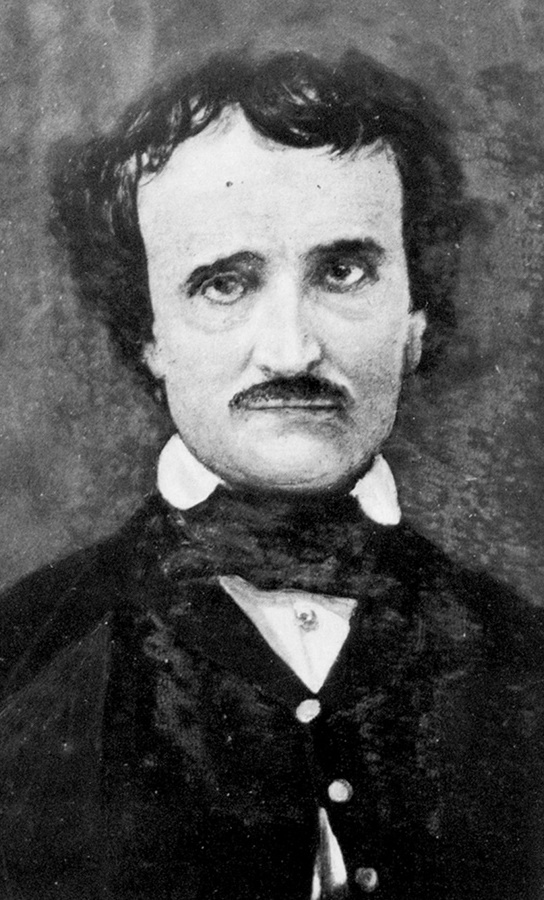
Edgar Allan Poe (b. 1809 d. 1849) Portrait by Gabriel Harrison, 1896.
Subjectivity – as persons experience this inner, vital reality of being – is the fundamental reality of human existence. As persons, human beings experience the reality of their own life in ways that no other beings can. For instance, we are aware of the passage of time and what this means to our plans, aspirations and mortality. Far from being a theory, we feel our subjectivity as an existential category that cannot be duplicated in the cosmos. As persons, we experience our lives from the inside out – as reality proper. This means that we encounter ourselves in the totality of being, in the presence of objects, events and other persons and learn to cultivate reflection on the nature of my-self. This existential realization is awe-inspiring, but freighting to people who attempt to dispense with free will.
Genuine subjectivity enables man to participate in being. We discover ourselves in a world that serves as the spatial-temporal ground of our worldly existence. The world is our medium for self-understanding. This may be a common-sense proposition, but it is one that subjectivism fails to recognize, instead, making the world a sensual playground, life and interaction with other people, a battleground.
It is not difficult to see how subjectivism is responsible for postmodernism’s unprecedented moral anarchy. What other values can subjectivists aspire to than those whose purpose is to assuage man from the alleged burden of the self? Subjectivism is one manner of rebellion against the demands made on us by human freedom. Regrettably, free will acts as a burden, a source of frustration for many postmodern people.
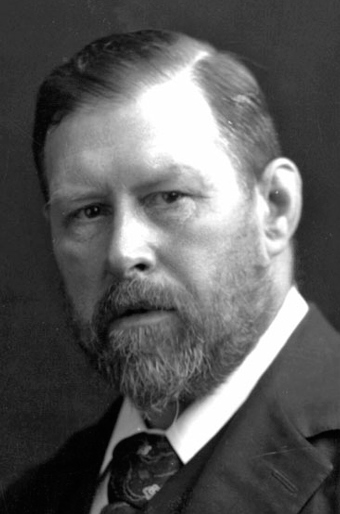
Abraham Stoker (b. 1847 d. 1912)
Subjectivists find solace in each other for mutual protection. Subjectivism has managed to institutionalize itself in Western culture by promoting the illusion that its modus operandi – relativism – works for the common good. Relativists relish their push to deconstruct normative values – often only out of spite for objective moral standards. For others, relativism is a strong desire that seeks to destroy objective values merely because these are viewed as authoritative and oppressive. It appears that relativists challenge each other to create the next wave of shock and awe. Today, the effect of subjectivism’s moral-spiritual aberrations has become accepted by many people. Most importantly, given its lasting impact to man and society, relativism serves as a laboratory that breeds pathological personality disorders.
The momentum that relativism gathered in the 20th century can be traced in part to relativism’s destruction of objective values. The major appeal of subjectivism, in all its variegated forms, is that it offers some people the ability to exercise values that they consider timely and fashionable. Relativists believe they can re-make themselves on demand. Adherents of relativism do this with the upmost confidence that moral judgment and logical discernment will not be tolerated.
Given the exalted appeal of subjectivism in promoting man’s ultimate emancipation from himself, subjectivism now enjoys unprecedented chic appeal. Subjectivism is a form of emancipation from the demands made on the human person by free will. This has created the illusion in some people that there are no objective values. This notion empowers post-modern Man to create a personal code of morality. The logical implications of this convenient and opportunistic morality come at a highly destructive cost, though. It is hard to fathom that technologically complex democracies in the future will be able to sustain a myriad of contradictory views without canceling each other out.
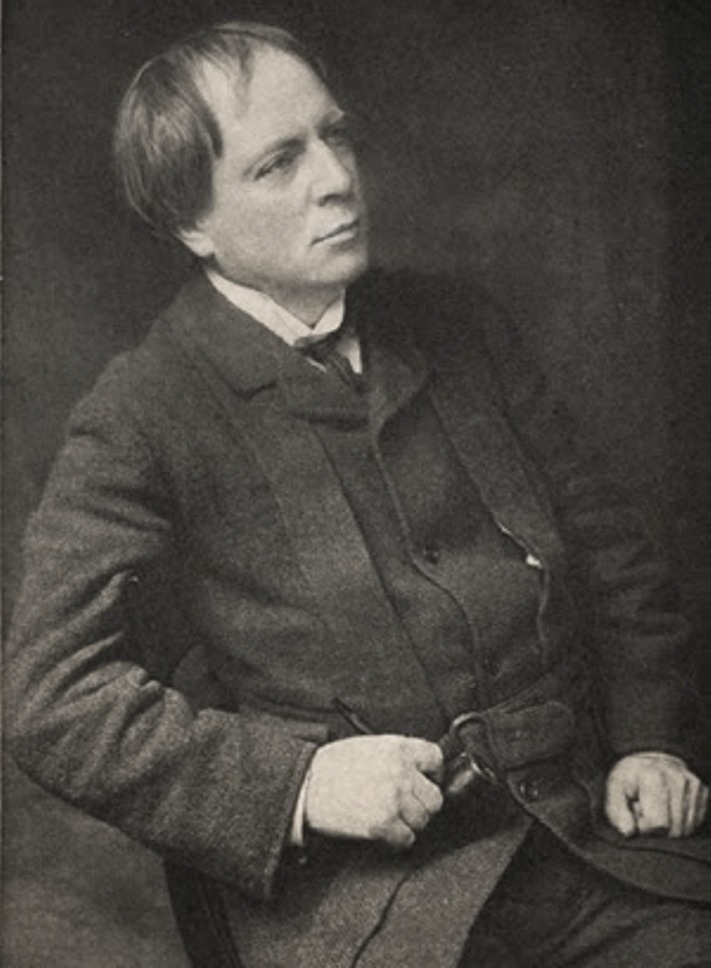
Arthur Machen (b. 1863 d. 1947)
Intellectually honest research and study of relativism will one day reveal how much suffering this dead-end philosophy has wrought on Western societies. Lamentably, the latter will undoubtedly come under duress. To date, we possess an abundance of statistics on suicide, alcoholism, depression, drug use, etc., that address the destructive legacy of relativism.
Cultivation of the self is a creative act that engages differentiated persons for a lifetime. In other words, because we respect our existential condition, we spend a lifetime caring for our temporal condition. This is a form of keeping the score of our existential condition.
The Spanish philosopher, Ortega y Gasset, argues that Mass Man is careless about his own self. This makes this type of person a destructive force in the lives of other people and institutions. Ortega argues that it is the Noble Man, not the subjectivist, who places great demands on himself. The celebration of mediocrity of spirit, the Spanish thinker tells us, is the great achievement of mass man. Noble Man, Ortega contends, experiences lived-existence in its totality, including the understanding of life as vexing resistance. Man embraces difficulty, not because we are masochists, but because it forms the basis of earthly human life and often serves to ennoble human existence with meaning and purpose.
Subjectivists do not burden themselves with difficulty, especially when this requires having to embrace objective values. The predominate belief of subjectivists is that life is too difficult, so why create more problems for ourselves? This condition enables people to vacillate from pleasure to pleasure in pursuit of illusive happiness. Subjectivists are content to live out their earthly life without convictions or commitments that get in the way of their quest for pleasure. This is what they mean by not being judgmental. Hence, we see that sophism is alive and flourishing in postmodernity. Subjectivists think of life as provisional; human existence is reduced to the here-and-now.
V
Reading, Cultural Literacy, Computer Technology and the Future of Democracy
Radical ideology is opportunistic by its very nature. Lacking the rational and logical apparatus to sustain coherence, in addition to good will, radical ideology instead opts for power. Through intellectual appeal to groupthink, radical ideology must make use of handpicked worldly events – issues these are called today – in order to safeguard itself from rational argument. Marxism is the paramount example of radical ideology that mankind has seen dating back to the 1880s.
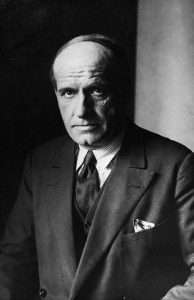
Jose Ortega Gasset (b. 1883 d. 1955)
Marxism’s praxeology blocks the ability of individuals who possess basic common sense from derailing Marxism’s dream of utopia, and here-and-now messianism that is brought about through social-political power. This is a masterful stroke of doing the Devil’s work. That is, by first eroding man’s capacity to attain and practice self-rule, Marxism instead sells people the idea of the impossibility of such a quest. Self-rule, Marxism asserts, is a bourgeois illusion. Yet we are never told who are the bourgeois elements in society and how the alleged bourgeoisie comes to be in the first place.
Karl Marx was a resentful man obsessed with the caste system. He confused caste with class. After the Industrial Revolution, the idea of caste began to dissolve. Instead, the classes that surge forth from modern industrialization are the opposite of the caste system, in that these classes are now the result of mobility. Yet Marx assumes that people in different classes are fixed in a theoretical lack of mobility, like in the caste system, which the spread of market economy has proven not to be the case. Is Marxism’s intellectualized rendition of human reality and man’s relation with each other the debased product of a demoralized bourgeois pseudo-thinker?
Thoughtful students of history answered the aforementioned question long ago. Throughout the 20th century, it became clear that Marxist intellectuals had become the ruling elites in Western civilization. Marxists, like no other intellectuals in history, are power-hungry individuals, who do not relinquish power once they have attained it – or when they have been proven wrong by history. Currently, Marxist intellectuals represent the hegemony of power in Western civilization, a form of inebriating and hallucinogenic power that is irrespective and out of proportion to the will of the common people.
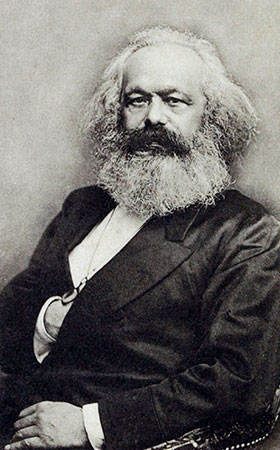
Karl Marx (b. 1818 d. 1883)
Besides the millions of people who have been sacrificed to Marxism’s progroms, the greatest casualty of Marxism’s “everything is political” ideology is social-political stability in Western civilization. Literature has become the greatest sacrificial lamb of Marxism’s politicization of culture. Marxism must of necessity wield the wand of censorship, given that if the ends are truly to justify the means, then clearly the alleged emancipation of man from bourgeois forces must take precedent over the arts. This is in keeping with the distinction made in the previous section between subjectivity and subjectivism, for Marxism embraces collective subjectivism, not genuine subjectivity. The latter is a characteristic of concrete existential reflection.
It is not necessary here to cite the historical facts of Marxism’s censorship of literature, writers and philosophers, for that lamentable historical fact is very well document. Instead, in keeping with the main thesis of this essay, which has to do with the revival of Western civilization in the future, the appropriate question to ask is what will become of cultural literacy in the future? In addition, how does censorship that works in the service of radical ideology, erode democracy?
History and knowledge address each other in a fundamental way. Knowledge is the repository of man’s achievements and failures, which are objectively made transparent for future generations to embrace, deny and verify. What a more potent and fitting romantic notion can young people embrace, than to realize that vast swaths of terrain, historically speaking, has already been cleared for them? This means that history and the literary arts carry with them the tried and failed laboratory of man’s contradictory worldviews. Consider the amount of individual and collective suffering that can be avoided if Marxist intellectuals would one day heed the lessons of history?
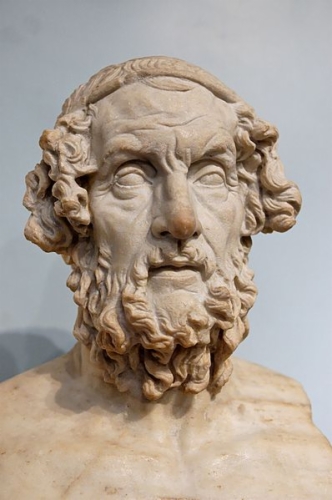
Marble bust of Homer.
The strength of Western civilization, as is especially articulated in the great books, is easily attested to by the universal questions that writers and philosophers that make up the canon have addressed. If, for radical ideological reasons, this vast depository of ideas, thought and values is destroyed – deconstructed is the operative word in postmodernism – then, what are the odds that man will ever stop repeating history? What remains in the absence of universal truths is cynicism and skepticism, which quite ironically are not as universal values, as the universal truths embraced by the great books, for history has proven that man cannot live without moral-spiritual stability that leads to hope.
It is a lamentable aspect of postmodernity that man today reads less than during preceding ages. Statistics bear this out. By reading, we ought to mean reading that is undertaken for the sake of enlightenment. Published materials abound in postmodernity. There are more public and university libraries today than during any other period in history. The warehouses of knowledge that postmodern man can tap into are unprecedented in history. For this reason, it is important that Western civilization recuperate the art of reading as a form of enlightenment and even self-salvation.
Part of the problem that reading encounters today is the vast sources of entertainment available. Until about the 1980s, the debate between reading and television was all the rage. With the full-blown assault of computer technology on Western man, the debate has now shifted to reading and electronics. In essence, the debate is still the same, it is now just a matter of proportion.
The real question remains as to who were the readers in a previous age, and what did reading signify for them? One answer is that the explosion in computer and electronic technology has alienated a vast number of people from reading and the literary arts. Would many of these people have been diligent readers in a previous age? This remains an open question.
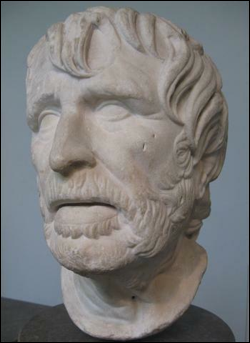
Marble bust of Hesiod.
Mass Man gravitates to cheap and ready values in any age. The problem with the proliferation in computer and electronic technology is the quick and sweeping effect that they have on the lives of many unsuspecting people, especially children and youth. The latter is important, because the lure of electronics is so addictive that most young people never have a chance to cultivate genuine culture.
The appropriate question to ask about computer and electronic technology’s total control over Western civilization, circa 2019, is what effect does this have on Man’s ability to sustain democratic governments. Not long ago, the hopeful expectations of people who advocate self-rule and personal responsibility by citizens in democratic nations was that communication technologies would help keep the totalitarian impulse at bay. Postmodern reality has destroyed that hope.
Because Marxism’s chameleon-like dialectic does not waste an opportunity to advance its radical ideology, it has discovered ways to consolidate technological advancement and the capital of those who produce it. We ought not to forget that Marxism and all its variants of socialism are incapable of producing products and services that make life more fruitful for people. Marxism and socialism can only make strides in popular culture as long as there is capitalism to prey on. That is the ruthless predatory nature of Marxism’s quest for power.
Far from bringing about the end of history, the fall of communism in Europe in the early 1990s instead introduced a form of Marxist-socialist guerilla warfare leftism that has caught many people by surprise. After the close to 200 million people that communism has massacred, the rational expectation of people of good will is that the failed utopianism of socialism would be abandoned once and for all. What thoughtful and well-informed person would advocate for socialism today? The devastating degree of cultural and historical illiteracy that leftism has brought about has leveled postmodern man’s ability to make rational decisions based on the vast number of declassified documents from communist countries.
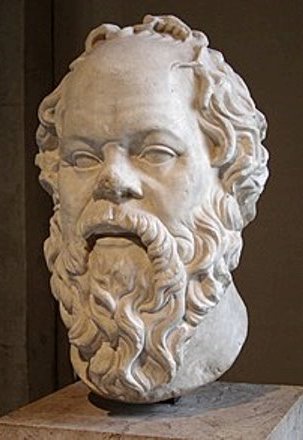
Marble bust of Socrates.
Communication technology has been suppressed or censored in communist country’s like Cuba, North Korea and China. In Western democracies this same technology is now being used to advocate for statism and against an individual’s capacity for self-rule. Who would have imagined that communication technology would work in the service of totalitarians? What has happened is that predatory Marxism – in its many postmodern variants – has siphoned capital and castrated the will of people who create goods and services. This has taken place through intimidation, threats, ridicule and effective censorship.
Several factors – which have taken liberty-loving people by surprise – are at work in postmodernity that stifle the hope of differentiated persons to safeguard the sense for life from the encroachment of radical ideology. One of these factors is the unprecedented radicalization of a vast portion of the world’s free press. This is especially true in the United States, where the press no longer plays the role of independent observer of facts. Another factor is the power that advocacy groups that promote radical ideology have attained in forging public opinion and creating public policy. No group is as vulnerable to this barrage of indoctrination than unsuspecting, ill-educated youths whose education has been consumed by social-political manipulation.
Another threat to the health of stable democracies in the future is the great deterioration of science, as an independent discipline of study and discernment of human reality. Science has been blackmailed by radical ideology. The transformation of science into a vehicle for radical ideology in the last fifty odd years, at the hands of radicalized advocacy groups, is unprecedented. The latter is particularly important because independent scientific inquiry cannot be censured. Skepticism is one of the driving forces behind sincere scientific inquiry.
VI
Concluding Remarks
Western youths in the decades to come must come to terms with the devastation that Western civilization has undergone in the quest for alleged infinite emancipation from the burden of personal responsibility and free will. The latter two characteristics are fundamental aspects of the human person, which postmodernism denies.
Hence, a neo-romantic worldview of human reality must be tempered with realism. This entails having a firm grasp of the limitations imposed on and damage done to the human psyche by man’s totalitarian impulse. Modernity and postmodernity have witnessed systematic terror and censorship like no other historical period, prior to the creation of Marxism. The execution of Marxist terror, by its untold variants, is still active and prospering in our own time. Regrettably, today the totalitarian impulse is aided by technology and the destruction of the free press.
Neo-romanticism safeguards the dignity of the human person by cultivating a sense for life. This means understanding human existence as the manifestation of differentiated individuals who seek transcendence in God as the motivating force behind human action, meaning and purpose. Neo-romanticism will be a viable form of dignified human existence in the future. This is because neo-romanticism is a stoic and patient weltanschauung that refuses to reduce human existence to fashionable contingencies of the here-and-now, especially during periods when this becomes the domain of radical ideology.

Prof. Pedro Blas Gonzalez
— Pedro Blas González is Professor of Philosophy at Barry University, Miami Shores, Florida. He earned his doctoral degree in Philosophy at DePaul University in 1995. Dr. González has published extensively on leading Spanish philosophers, such as Ortega y Gasset and Unamuno. His books have included Unamuno: A Lyrical Essay (Floricanto Press, 2007), Ortega’s ‘Revolt of the Masses’ and the Triumph of the New Man (Algora Publishing, 2007), Fragments: Essays in Subjectivity, Individuality and Autonomy (Algora Press, 2005) and Human Existence as Radical Reality: Ortega’s Philosophy of Subjectivity (Paragon House). He also published a translation and introduction of José Ortega y Gasset’s last work to appear in English, “Medio siglo de Filosofia” (1951) in Philosophy Today Vol. 42 Issue 2 (Summer 1998).
Endnotes:
- Machado de Assis, Philosopher or Dog? (New York: Avon Books, 1982) p. 3.
- Titus Lucretius Carus, On the Nature of the Universe. (New York: Penguin Books, 1951) p. 97.
- Alexander Solzhenitsyn, From Under the Rubble. (Boston: Little, Brown and Company, 1974) p. v.
- Ibid. p. vi.
- Hesiod, Theogony, Works and Days, Shield. Translation, Introduction, and Notes by Apostolos N. Athnassakis. (Baltimore: The Johns Hopkins University Press, 2004) p. 12.
- Ibid. p. 11.



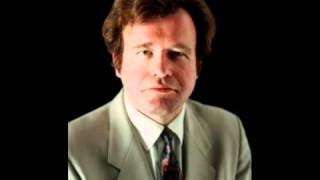

Be the first to comment on "A Manifesto of Neo-Romanticism"